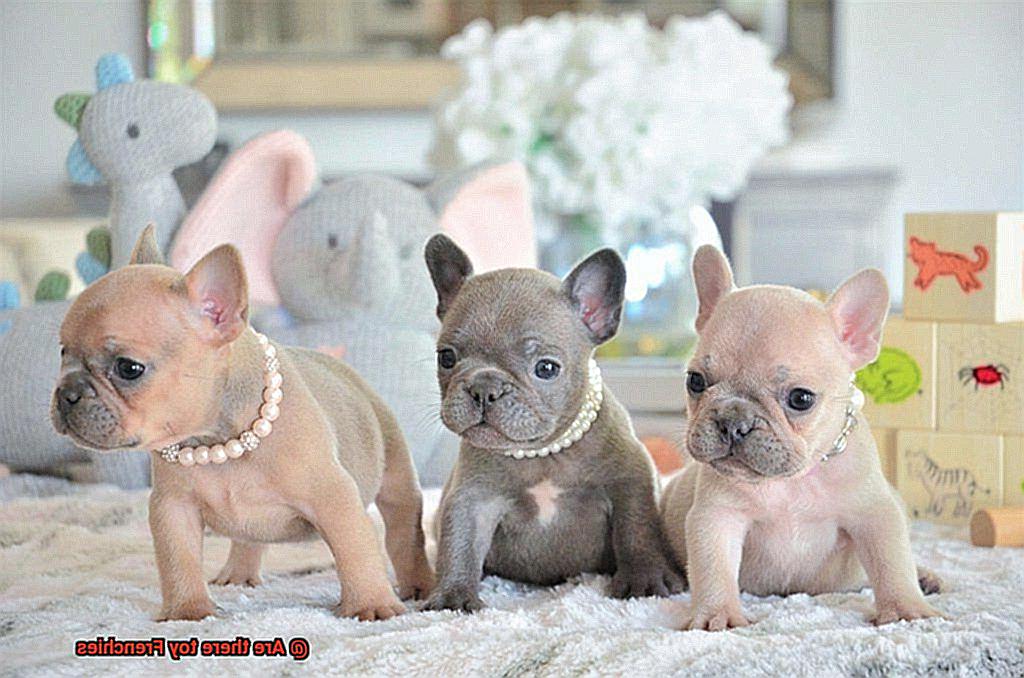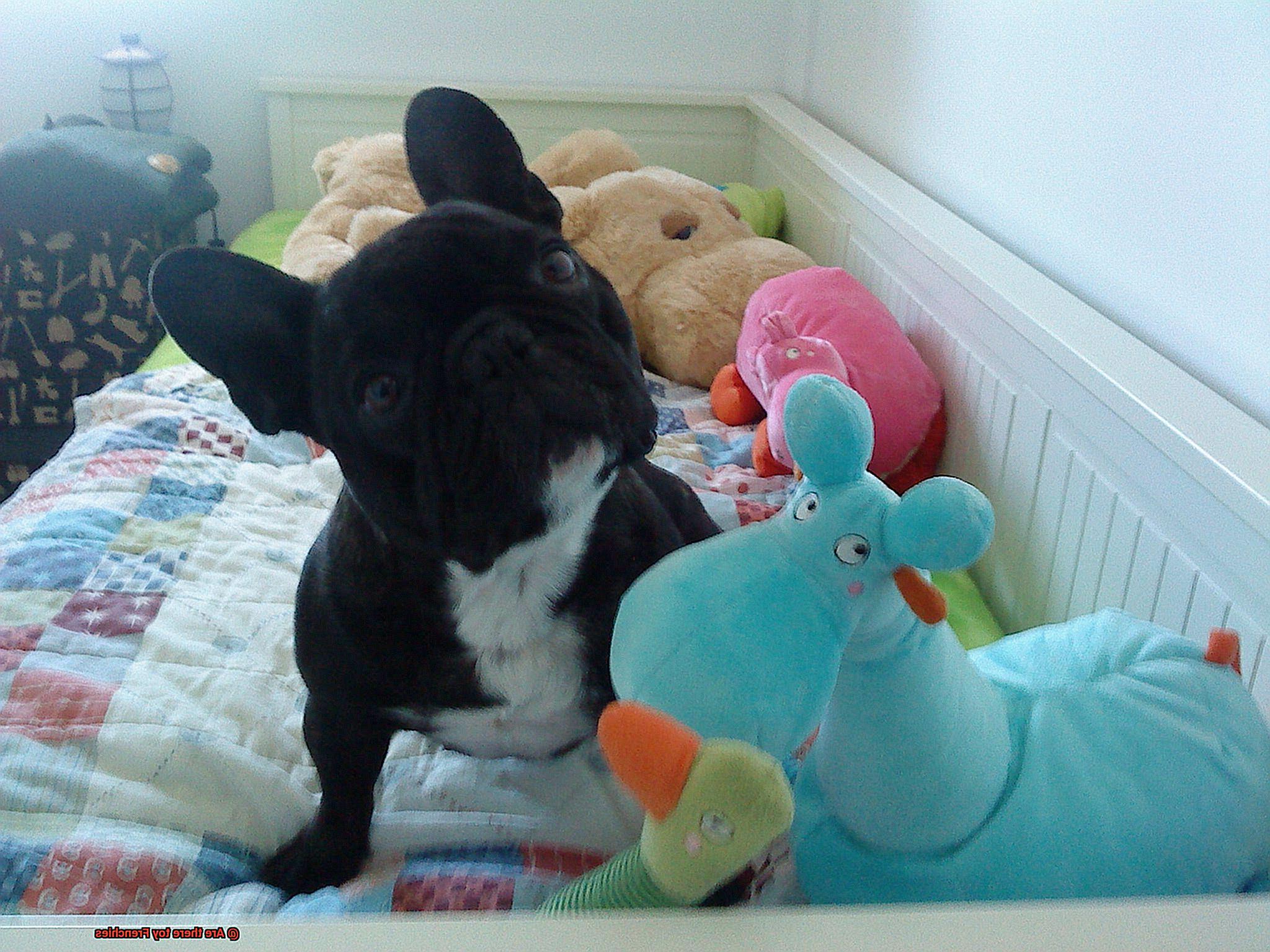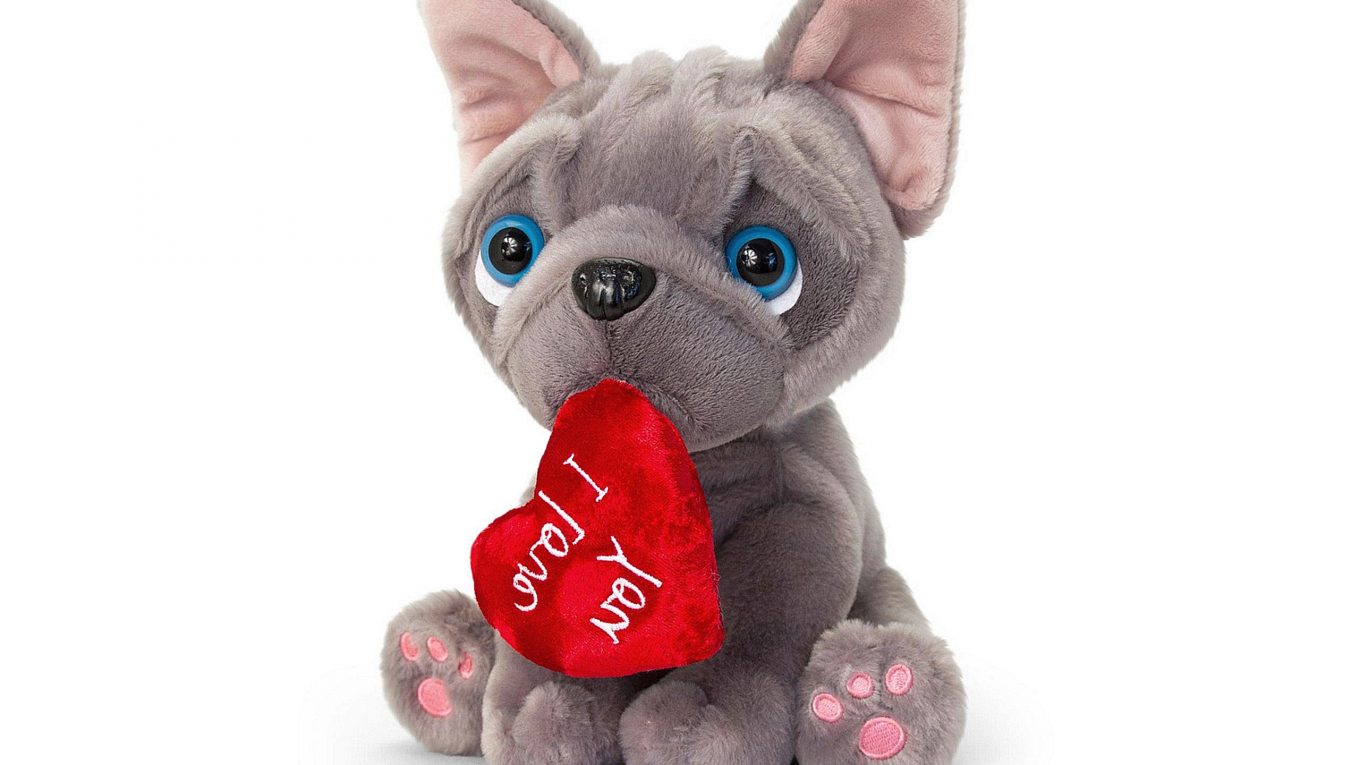Are there toy Frenchies?
Welcome to our blog post all about toy Frenchies.
Curious if these adorable mini versions of the famous French Bulldog really exist? Well, you’re in luck because we’ve got all the answers right here.
Toy Frenchies, also known as mini or teacup Frenchies, have been stealing hearts left and right in the dog-loving community. But don’t be fooled by their small size – these little guys are bursting with personality and oozing charm.
So, grab yourself a cup of joe and prepare to be utterly smitten by the enchanting world of toy Frenchies.
Are Toy Frenchies Recognized by Breed Standards?
Contents
- 1 Are Toy Frenchies Recognized by Breed Standards?
- 2 How Do Breeders Create Toy Frenchies?
- 3 Ethical Concerns Surrounding the Breeding of Toy French Bulldogs
- 4 Potential Health Issues in Smaller-Sized Dogs
- 5 Finding a Reputable Breeder for Toy French Bulldogs
- 6 Alternatives to the Toy French Bulldog Breed
- 7 Preparing for the Extra Care and Attention Required for a Toy Frenchie
- 8 Understanding the Risks Before Buying a Toy Frenchie
- 9 Conclusion
French Bulldogs, with their adorable bat-like ears and affectionate personalities, have become a popular breed among dog lovers. However, you may have heard of “toy” or “miniature” French Bulldogs and wondered if they are recognized by breed standards. In this article, we will explore the world of toy Frenchies and shed light on why they are not officially recognized by breed standards.
Understanding Breed Standards:
Breed standards serve as a guideline for breeding practices and ensure that dogs conform to specific criteria that reflect their original purpose and maintain their overall well-being. These standards are set by kennel clubs and breed associations such as the American Kennel Club (AKC) and the Fédération Cynologique Internationale (FCI).
The Absence of Toy Frenchies in Official Standards:
Despite their popularity, toy Frenchies do not have a separate category in official breed standards. The AKC and FCI recognize the standard size for French Bulldogs, which typically ranges from 16 to 28 pounds. These organizations do not endorse breeding for smaller sizes or categorize toy or miniature French Bulldogs as a distinct breed.
Selective Breeding Practices:
Toy Frenchies are often the result of breeding two smaller-sized parents or intentionally breeding for smaller sizes through selective breeding practices. However, it’s important to note that these smaller-sized Frenchies may not meet the requirements set by breed standards. There can be potential health issues associated with their size, including respiratory problems, joint issues, and heat sensitivity.
Ethical Considerations:
Some unethical breeders take advantage of the demand for smaller-sized dogs and may advertise toy or miniature Frenchies for higher prices. These breeders prioritize size over the health and well-being of the dogs, potentially leading to genetic problems and health issues in these smaller breeds.
Finding a Responsible Breeder:
If you are interested in owning a French Bulldog, it is crucial to research and choose a reputable breeder who focuses on producing healthy and standard-sized Frenchies. Responsible breeders prioritize the health and well-being of their dogs above all else and follow established breeding practices guided by recognized breed standards. Visiting the breeder’s facilities, asking questions about their breeding practices, and inquiring about the health history of their dogs are essential steps in finding a reputable breeder.
How Do Breeders Create Toy Frenchies?

When it comes to creating toy Frenchies, breeders employ various techniques to achieve the desired smaller size. Let’s take a closer look at some of the methods used in the breeding process.
Selective Breeding:
One common approach is selective breeding, where breeders focus on pairing French Bulldogs that are already on the smaller side. By choosing smaller-sized individuals as parents, breeders increase the likelihood of producing toy Frenchies with similar petite proportions.
Introducing Genes from Other Small Dog Breeds:
To further reduce the size of French Bulldogs, breeders may introduce genes from other small dog breeds into their lineage. This crossbreeding technique can be done responsibly and ethically, ensuring that the health and temperament of the offspring are not compromised.
Artificial Insemination:
Breeders also utilize artificial insemination to carefully select and combine genetic material. This method allows them to control which traits, including size, are passed on to the puppies. It’s important to note that artificial insemination should only be performed by experienced professionals to ensure the well-being of both the parent dogs and their offspring.
Creating toy Frenchies requires expertise and knowledge about genetics, breeding techniques, and an understanding of the breed’s standards. Responsible breeders prioritize the health and well-being of their dogs and conduct health screenings and genetic testing to avoid passing on any hereditary health issues to the puppies.
Potential buyers should do thorough research before purchasing a toy Frenchie. It’s crucial to choose a reputable breeder who prioritizes the welfare of their dogs and adheres to ethical breeding practices.
Ethical Concerns Surrounding the Breeding of Toy French Bulldogs
If you’re a proud owner of a French Bulldog or considering adding one to your family, it’s important to be aware of the ethical concerns surrounding the breeding of toy French Bulldogs.
While these miniature versions may seem irresistibly adorable, their small size and exaggerated features can contribute to a range of health issues and discomfort for these dogs. In this section, we will delve into the ethical concerns surrounding the breeding of toy French Bulldogs, shedding light on the potential risks and urging readers to make informed decisions when it comes to acquiring these beloved pets.
Health Problems:
Toy French Bulldogs are often bred to be smaller than the standard breed, which can lead to various health problems. Their small size can result in respiratory issues, joint problems, and even organ failure. Additionally, breeding for extreme features like pushed-in faces and overly large eyes can further exacerbate health issues and cause discomfort for these dogs.
Unscrupulous Breeders:
The demand for toy French Bulldogs as “designer” or “miniature” versions of the breed has led to unscrupulous breeders producing puppies without proper regard for their health and well-being. These breeders may engage in unethical practices such as excessive inbreeding or breeding from dogs with known genetic health issues. This lack of responsibility can lead to puppies with severe health problems and shortened lifespans.
Puppy Mills and Irresponsible Breeding:
The high demand for toy French Bulldogs has also fueled an increase in puppy mills and irresponsible breeding practices. In these scenarios, profit is prioritized over the welfare of the dogs, resulting in poorly bred puppies that may suffer from both physical and behavioral issues. By purchasing from these sources, unwitting buyers inadvertently support this unethical industry.
Concerns from Ethical Breeders:
Many responsible breeders of French Bulldogs argue against the breeding of toy versions of the breed. They believe that this practice compromises the health and integrity of the breed. These ethical breeders prioritize the health and well-being of their dogs, ensuring that they undergo genetic testing and receive proper veterinary care. They advocate for upholding the breed standard and producing French Bulldogs that are both healthy and true to their heritage.
Adoption and Rescue Organizations:
Adoption and rescue organizations also express concern about the welfare of toy French Bulldogs. These dogs may end up in shelters or abandoned due to health issues or behavioral problems resulting from poor breeding practices. It is important for potential owners to consider adoption as a viable option, as these organizations often have toy French Bulldogs in need of loving homes.
Potential Health Issues in Smaller-Sized Dogs
But beneath their charming exterior lies a world of potential health issues that can be a cause for concern. As an expert in this field, I am here to shed light on the dark side of owning these smaller-sized dogs. So, grab a cup of coffee and let’s dive into the world of potential health issues in toy Frenchies.
Patellar Luxation: The Wobbly Kneecap
Picture this – your toy Frenchie bounding around the room, only to suddenly yelp in pain and start limping. This could be a sign of patellar luxation, the dislocation of the kneecap. Due to their petite frame, toy Frenchies are more prone to this condition, which can cause discomfort and lameness. Regular vet check-ups are essential to catch this issue early and explore treatment options.
Dental Problems: A Not-So-Pearly Smile
Smaller dogs often face dental challenges due to their crowded teeth. Imagine trying to fit all those teeth into that tiny mouth. This can lead to tooth decay, gum disease, and other oral health issues. To keep that adorable smile intact, regular dental care is crucial, including brushing their teeth and providing appropriate chew toys.
Battle of the Bulge: Obesity in Toy Frenchies
It’s easy for those puppy dog eyes to convince us to give them one more treat, but beware. Toy Frenchies are more susceptible to obesity due to their small size. Even a few extra pounds can have a significant impact on their health, leading to diabetes, joint issues, and heart disease. Ensure a balanced diet and regular exercise suitable for their size and breed.
Breathing Difficulties: The Panting Predicament
Those adorable snorts and snuffles may be endearing, but they also indicate potential respiratory problems in toy Frenchies. Their short snouts and narrow airways make them more prone to breathing difficulties, especially in hot weather or during exercise. Keep an eye on their breathing patterns and provide a cool, well-ventilated environment to keep them comfortable.
Hypoglycemia: A Sugar Crash Nightmare
Toy Frenchies have a higher risk of developing hypoglycemia, which is low blood sugar. This can be life-threatening if left untreated. Ensure they have regular meals throughout the day and monitor their energy levels and appetite closely. If you notice any signs of weakness or disorientation, seek veterinary care immediately.
Finding a Reputable Breeder for Toy French Bulldogs
When it comes to bringing home a new furry family member, it is essential to find a reputable breeder, especially when looking for a toy French Bulldog. These little bundles of joy may be small in size, but they come with their own set of unique health considerations. Taking the time to research and find a reliable breeder is crucial to ensure the health and well-being of your new pup. So, let’s dive into why finding a reputable breeder is so important and how you can go about finding one.
Why is finding a reputable breeder important?
A reputable breeder prioritizes the health and well-being of their dogs. They carefully select breeding pairs based on breed standards, ensuring that the puppies are healthy and have the desired traits of the breed. Reputable breeders also conduct necessary health screenings and genetic testing to prevent passing on hereditary diseases or conditions to the puppies. By choosing a responsible breeder, you are increasing your chances of getting a healthy and well-adjusted puppy.
How to find a reputable breeder?
Finding a reputable breeder can be challenging, as there are unfortunately many unscrupulous breeders out there who prioritize profit over the welfare of the dogs. Here are some tips to help you find a reliable breeder:
- Ask for recommendations: Reach out to trusted sources such as veterinarians, local breed clubs, or other French Bulldog owners. These individuals can provide valuable insights based on their own experiences.
- Do your own research: Visit websites of breed clubs or organizations that specialize in French Bulldogs. These websites often maintain lists of reputable breeders. Take the time to thoroughly review the breeder’s website, paying attention to their breeding practices, available health certifications, and any testimonials or reviews from previous buyers.
- Visit the breeder in person: This is an essential step in finding a reputable breeder. By visiting the breeder’s facility, you can assess the living conditions of the dogs, observe their behavior, and interact with both the puppies and their parents. A reputable breeder should be open and transparent about their facilities and willingly answer any questions you may have.
- Ask about health guarantees and support: Reputable breeders often provide health guarantees for their puppies and offer ongoing support and advice to ensure their well-being even after they have been placed in new homes.
- Trust your instincts: If something feels off or if the breeder seems hesitant to provide certain information, it is best to walk away and continue your search for a reputable breeder.

Alternatives to the Toy French Bulldog Breed
While these adorable pups may have won your heart with their compact size and charm, it’s essential to know that the toy French Bulldog is not officially recognized as a breed. However, fret not. In this article, we will explore alternative breeds that possess similar qualities and make fantastic companions. Let’s dive in.
Boston Terrier:
Known for their friendly and affectionate nature, Boston Terriers are a great alternative to toy French Bulldogs. These small, compact dogs have endearing personalities and make excellent family pets. With their short coats, they require minimal grooming, making them ideal for those with busy schedules.
Advantages:
- Friendly and sociable
- Great with children and other pets
- Low grooming needs
- Compact size for apartment living
Pug:
If you’re looking for a breed with a big personality in a small package, consider the Pug. Like French Bulldogs, Pugs have distinctive wrinkled faces and compact bodies. They’re playful and sociable companions that will bring joy to any household.
Advantages:
- Playful and affectionate
- Excellent family pets
- Compact size for indoor living
- Adaptable to various lifestyles
Disadvantages:
- Potential breathing issues due to brachycephalic features
- May require more grooming due to shorter muzzle
English Bulldog:
If you’re open to a slightly larger alternative, the English Bulldog is another excellent choice. They share many characteristics with French Bulldogs, including a friendly and gentle temperament. English Bulldogs are loyal and loving companions that thrive on the affection of their families.
Advantages:
- Gentle and loyal
- Great with children and other pets
- Requires moderate exercise
- Adaptable to different living situations
Disadvantages:
- Prone to overheating in hot weather
- Potential health issues due to their brachycephalic features
Preparing for the Extra Care and Attention Required for a Toy Frenchie
Preparing for the Extra Care and Attention Required for a Toy Frenchie
As an expert in caring for Toy Frenchies, I understand the importance of providing them with the extra care and attention they need. These pint-sized pups may be small, but they come with their own set of unique requirements. In this guide, I will walk you through the essential steps to ensure your Toy Frenchie is happy and healthy.
- Health Concerns: Toy Frenchies are more prone to certain health issues due to their smaller size. Respiratory problems, joint issues, and dental problems are common. Regular veterinary check-ups are crucial to monitor their health and address any concerns early on.
- Temperature Control: Toy Frenchies have a harder time regulating their body temperature. Ensure they are kept in a comfortable environment with appropriate temperature control, especially during extreme weather conditions.
- Exercise: While Toy Frenchies have lower exercise needs compared to larger dogs, they still require regular physical activity. Short walks and play sessions will help keep them fit and mentally stimulated.
- Dietary Requirements: Due to their compact size, Toy Frenchies may have different dietary needs compared to standard-sized French Bulldogs. Consult with a veterinarian or canine nutritionist to determine the right diet plan and portion sizes for your furry friend.
- Grooming: Grooming needs for Toy Frenchies may differ from their larger counterparts. Regular brushing, nail trimming, and ear cleaning are necessary for maintaining their overall hygiene.
- Socialization: Toy Frenchies may be more prone to anxiety and separation issues. Gradually expose them to new environments, people, and animals to help them develop confidence and reduce potential behavioral problems.
- Safety Precautions: Due to their delicate size, accidental injury is a concern for Toy Frenchies. Use harnesses instead of collars, supervise interactions with larger dogs, and provide a safe and secure environment to prevent accidents.
Understanding the Risks Before Buying a Toy Frenchie
When it comes to buying a Toy Frenchie, it’s important to be aware of the risks associated with this adorable breed. While these pint-sized French Bulldogs may be irresistible, there are several factors to consider before bringing one into your home.
As an expert in the field, I want to provide you with all the information you need to make an informed decision. So, let’s dive into the risks associated with buying a Toy Frenchie.
- Health Issues: Toy Frenchies are often bred selectively for their small size, which can lead to a range of health problems. These can include respiratory issues, joint problems, heart conditions, and more. It’s crucial to understand that owning a Toy Frenchie may come with additional medical expenses and potential health concerns.
- Breeding Practices: Some breeders prioritize size over the health and well-being of the dogs. This can result in unethical breeding practices such as inbreeding or breeding from dogs with known health issues. To avoid supporting these practices, it’s essential to do thorough research and choose a reputable breeder who prioritizes the health and welfare of their dogs.
- Special Care Requirements: Owning a Toy Frenchie requires special care and attention due to their delicate nature. Their small size makes them more vulnerable to injury, so extra precautions must be taken to ensure their safety. Additionally, they may be more prone to separation anxiety and behavioral issues due to their strong bond with their owners. Potential owners should be prepared to dedicate the necessary time, attention, and care that these dogs require.
- Availability and Cost: Due to their smaller size and increased demand, Toy Frenchies can be more expensive than standard-sized French Bulldogs. It may also be more challenging to find reputable breeders who specialize in this specific variation of the breed. This means that potential owners should be prepared to invest both time and money into finding a reputable breeder and securing a Toy Frenchie.
In conclusion, while Toy Frenchies may be adorable and appealing, it’s crucial to understand the risks associated with buying one. Health issues, breeding practices, special care requirements, and availability are all factors that potential owners should consider before making a decision. It’s recommended to do extensive research, consult with reputable breeders, and weigh the pros and cons carefully before bringing a Toy Frenchie into your home.
AnKsq1gvrnI” >
Conclusion
The answer to the question “Are there toy Frenchies?” is a resounding no. Despite their popularity, toy Frenchies do not exist. This may come as a disappointment to some, but it’s important to understand that French Bulldogs are already a small breed, so downsizing them further would be detrimental to their health and well-being.
French Bulldogs are known for their unique appearance and charming personalities. They have become one of the most sought-after breeds in recent years, with their adorable squished faces and bat-like ears capturing the hearts of dog lovers worldwide. However, breeding them to be even smaller would compromise their physical health and increase the risk of various health issues.
Toy breeds are typically bred through selective breeding practices to achieve a smaller size. This often involves breeding runts or dogs with dwarfism traits, which can lead to significant health problems such as respiratory issues, joint disorders, and spinal abnormalities. French Bulldogs already face certain health challenges due to their brachycephalic (short-nosed) nature, so intentionally breeding them smaller would only exacerbate these concerns.
It’s essential for potential dog owners to prioritize the well-being of any breed they choose. While the idea of a miniature French Bulldog may seem appealing, it’s crucial to remember that responsible breeding practices focus on maintaining and improving the overall health and temperament of a breed rather than creating novelty variations.
So if you’re considering adding a Frenchie to your family, rest assured that you’ll be getting an adorable companion just the way they were meant to be – in all their compact yet sturdy glory.




